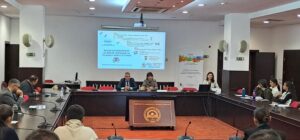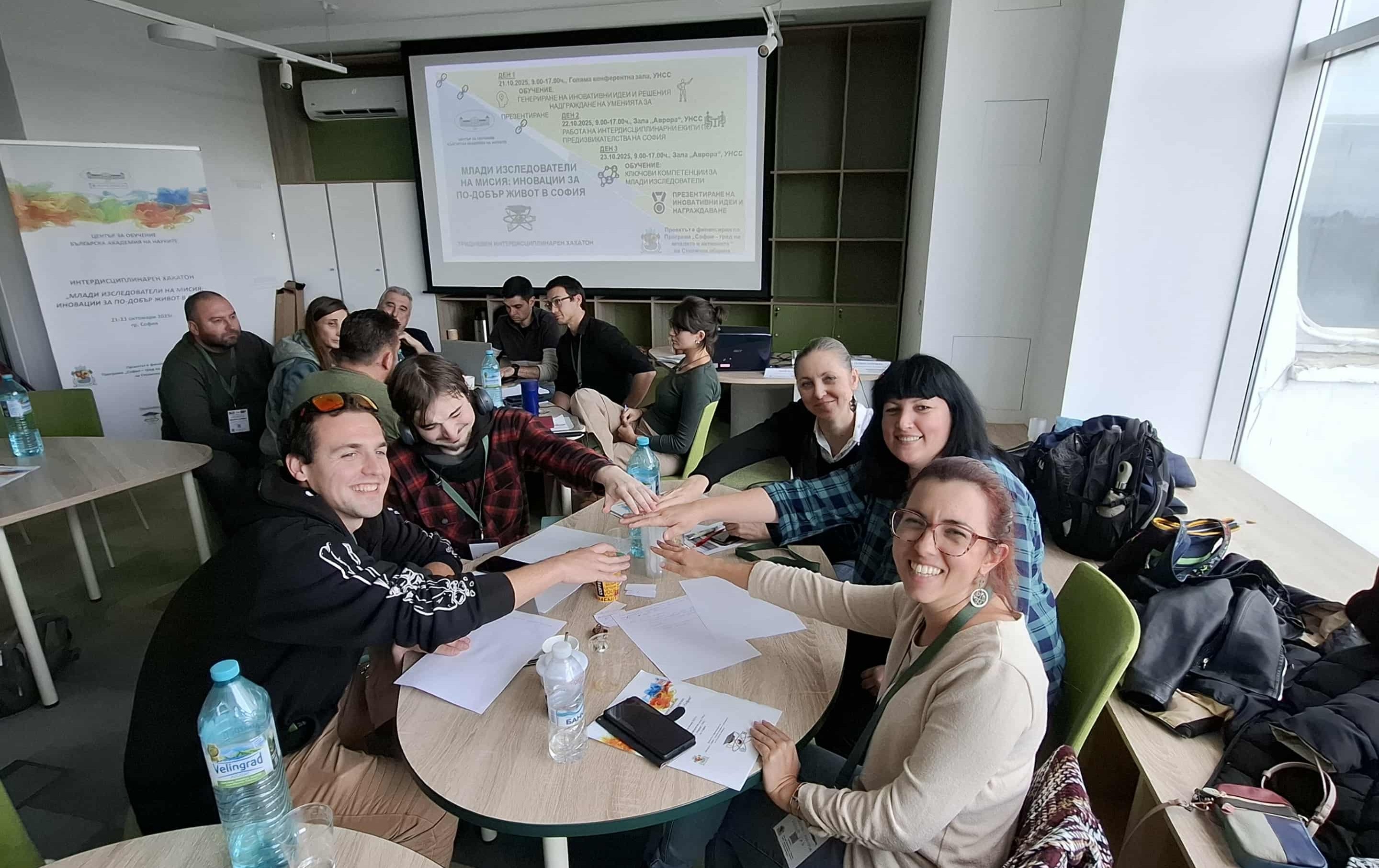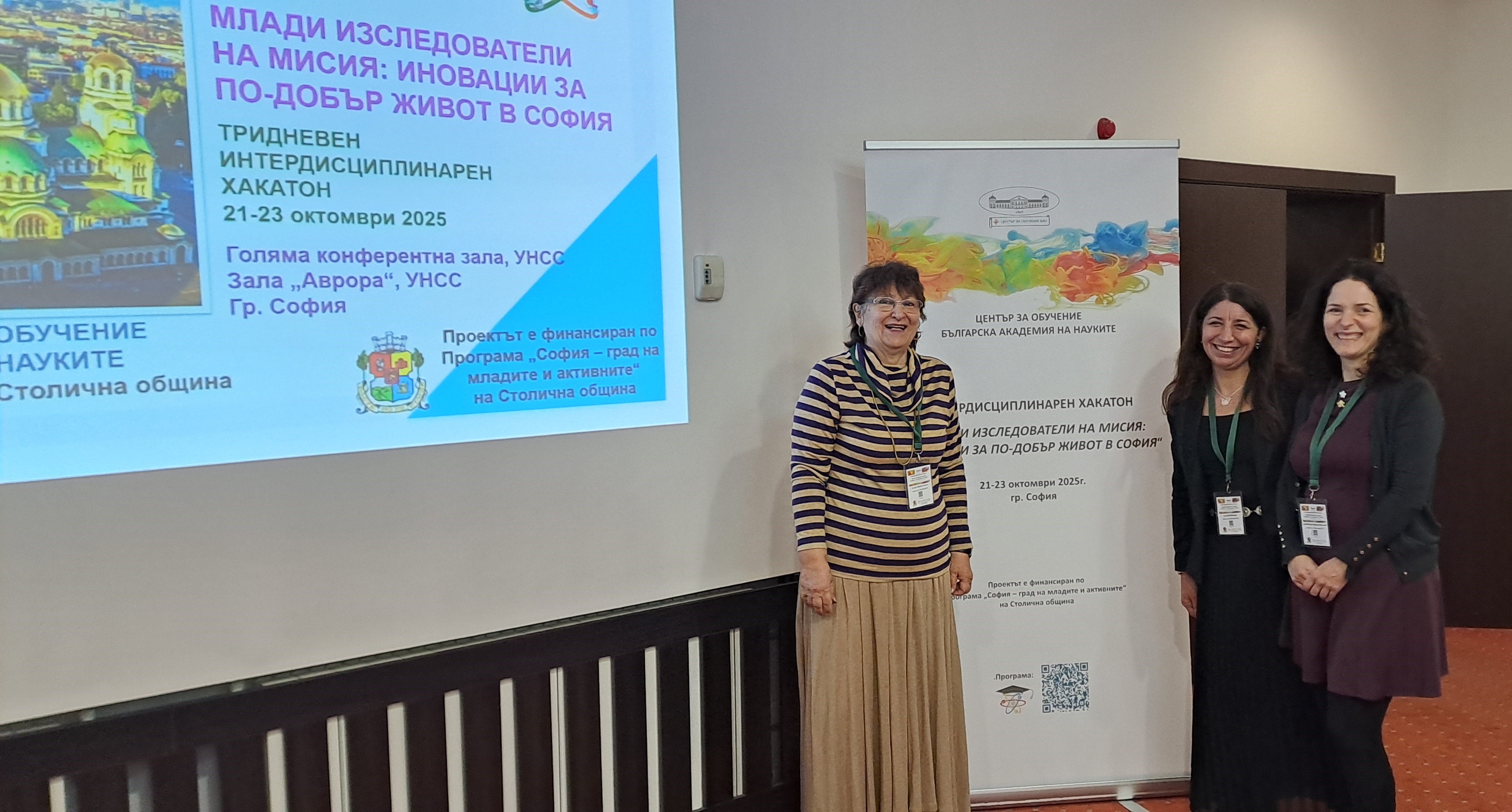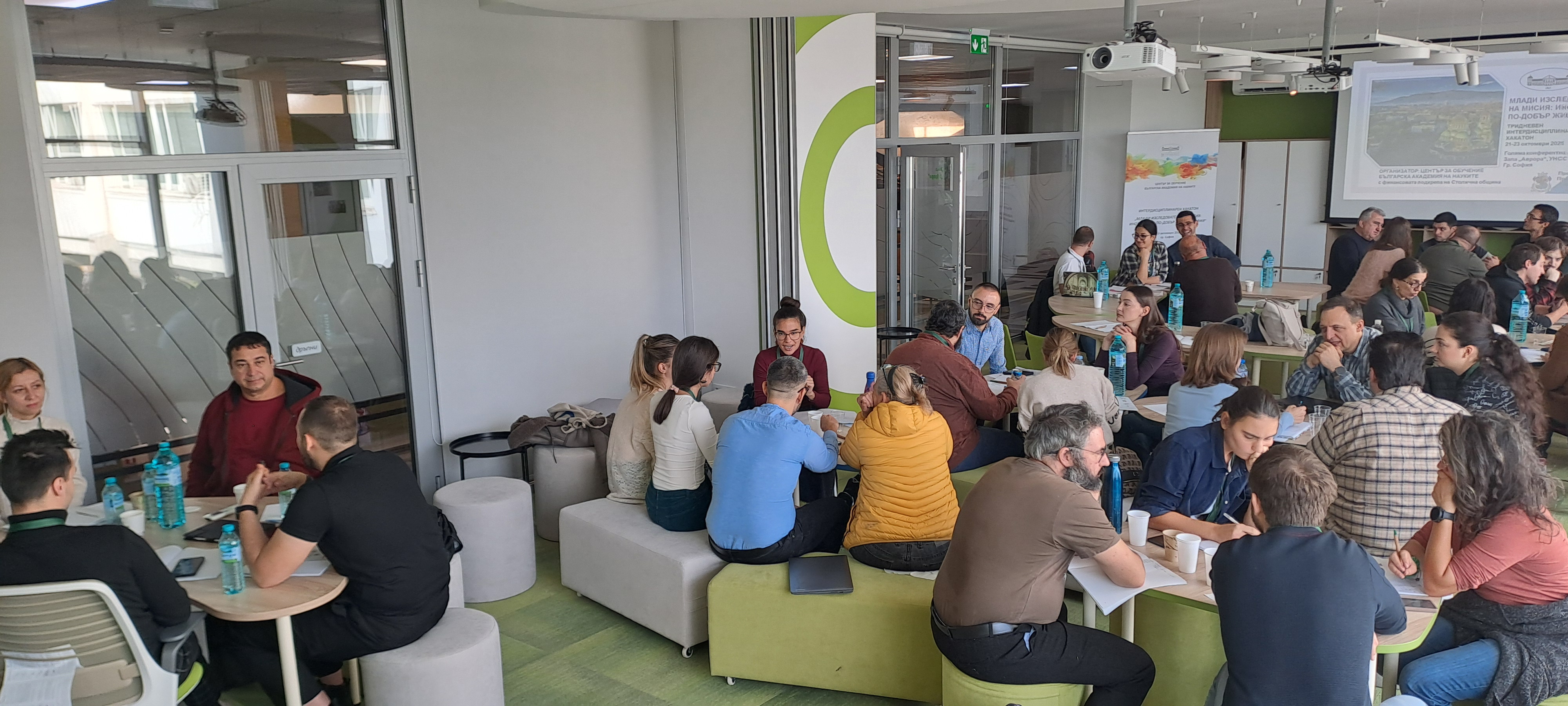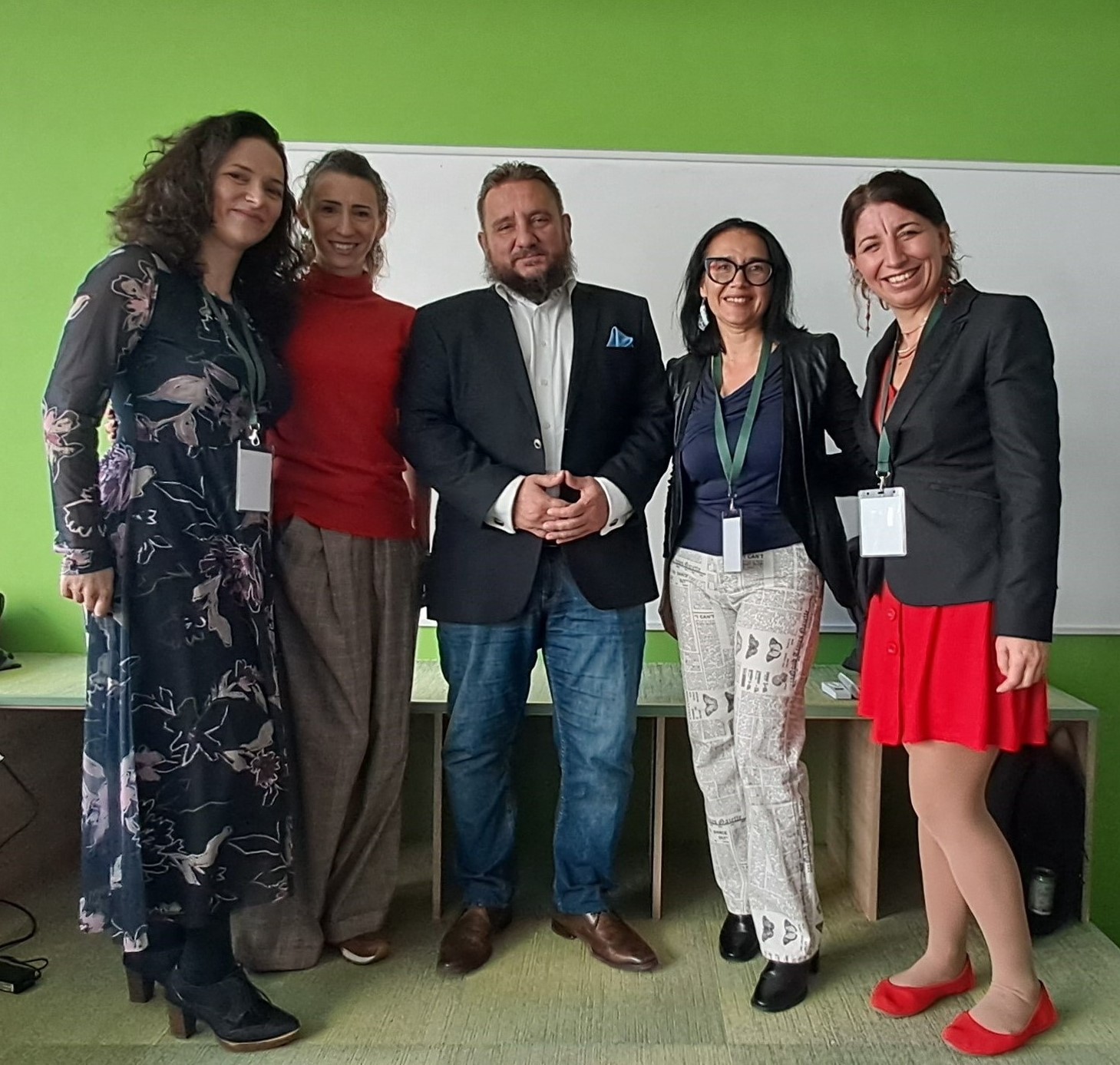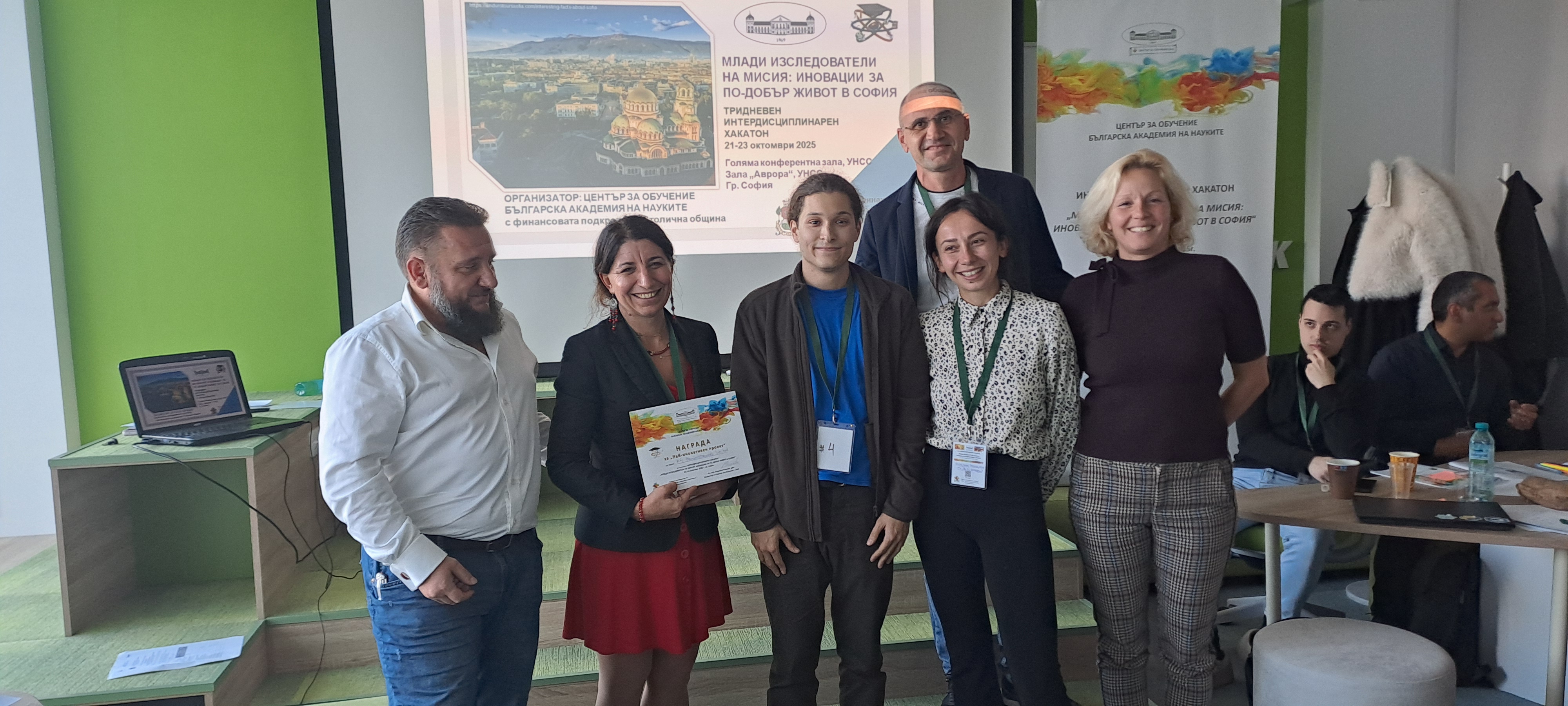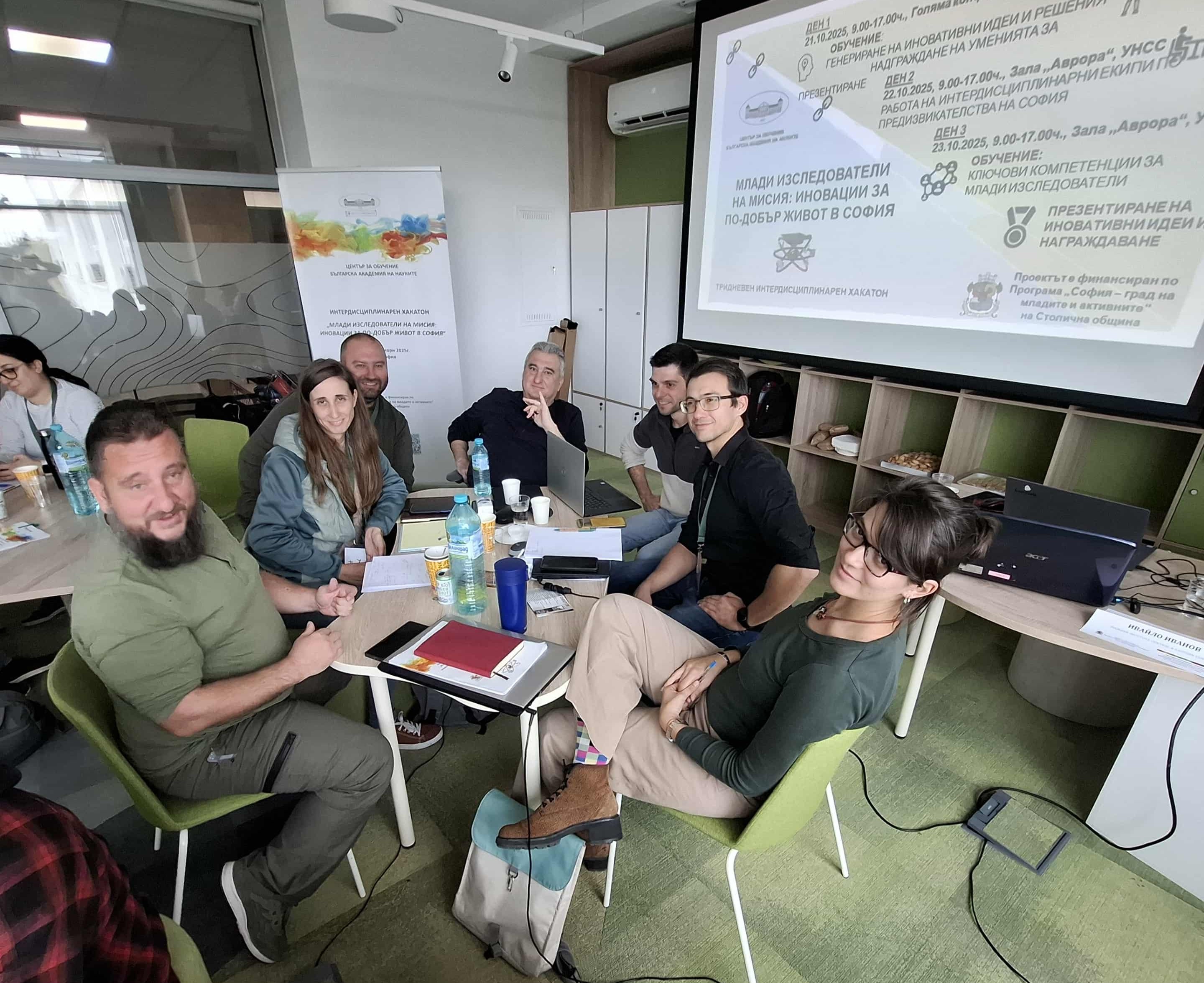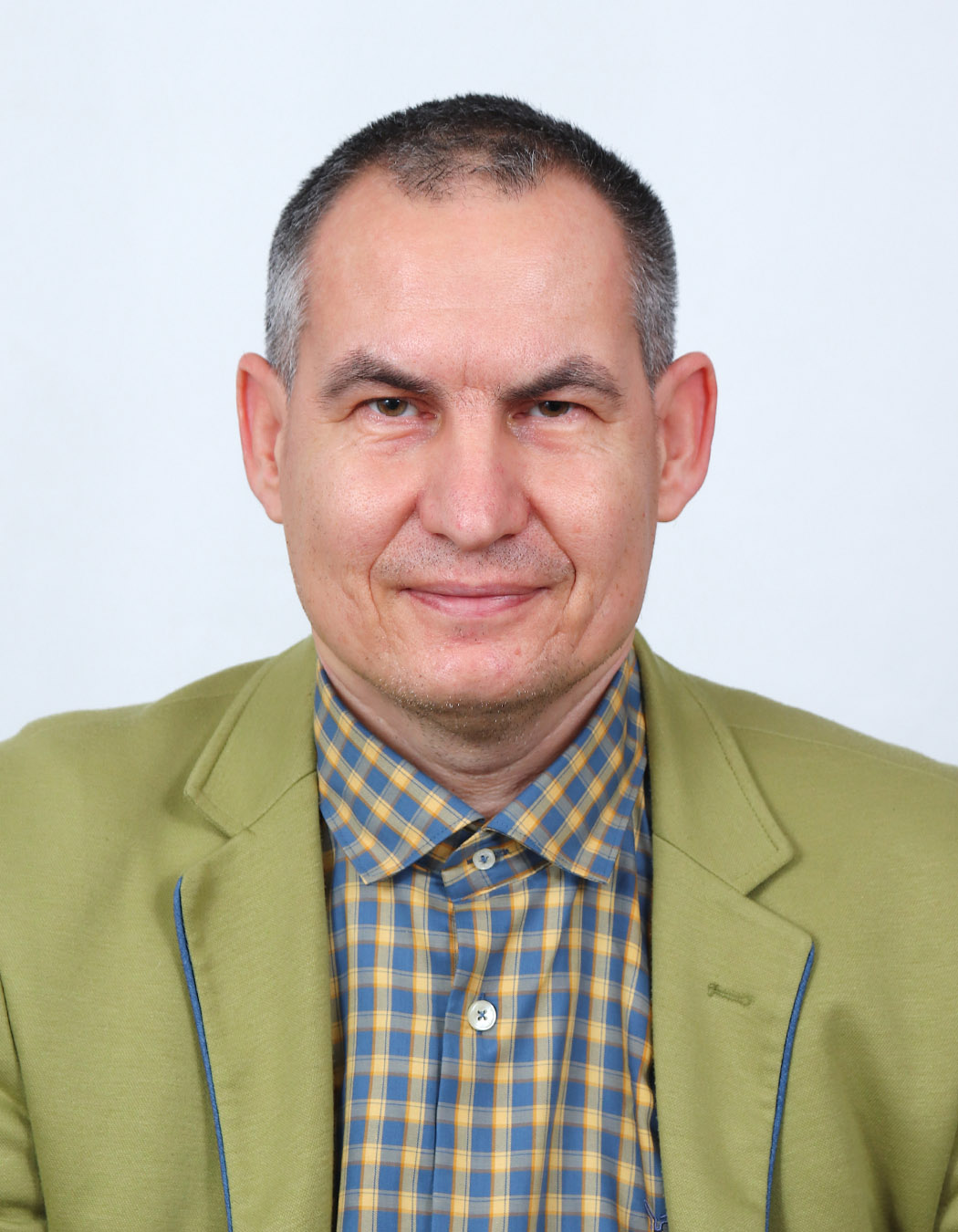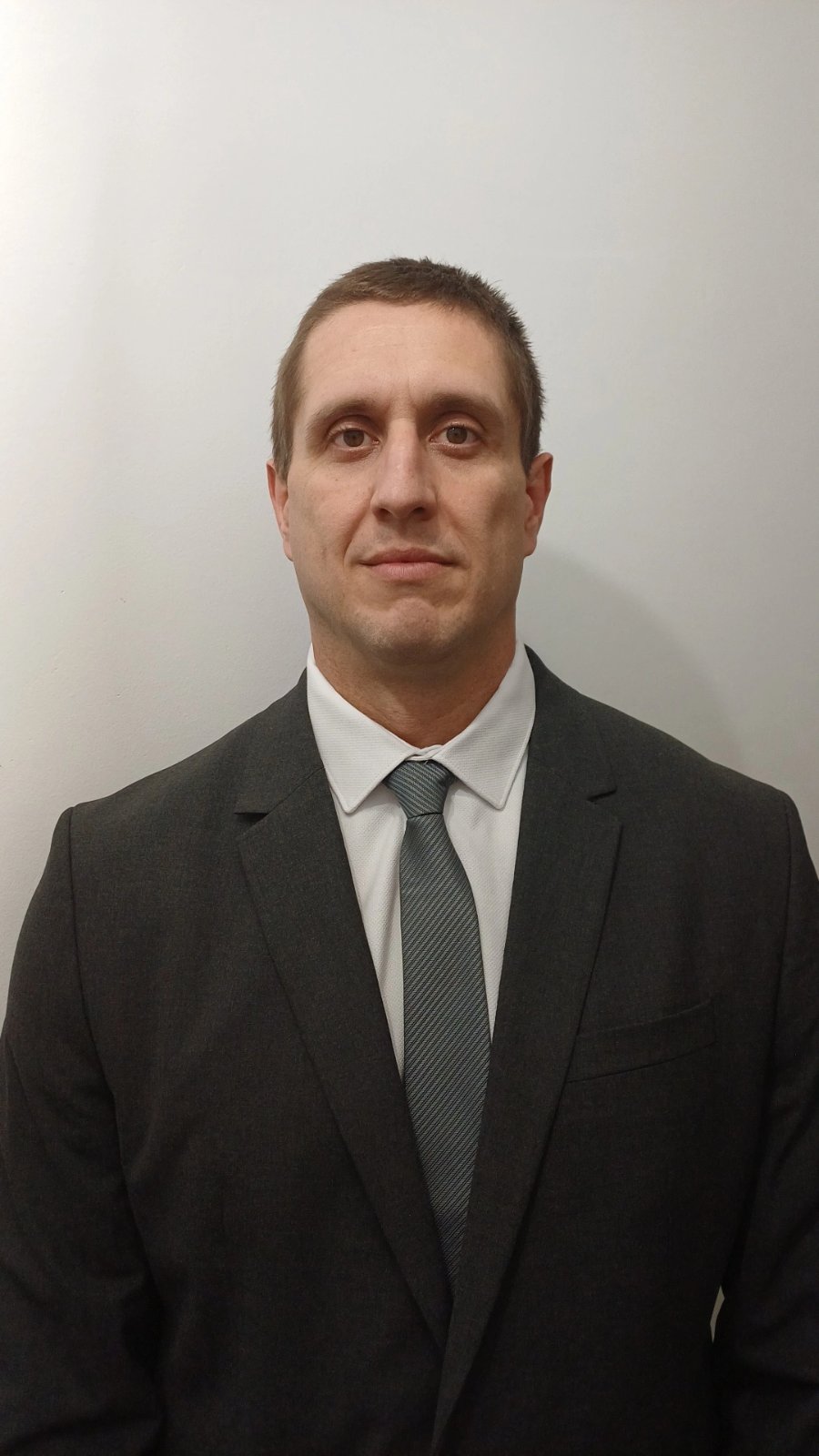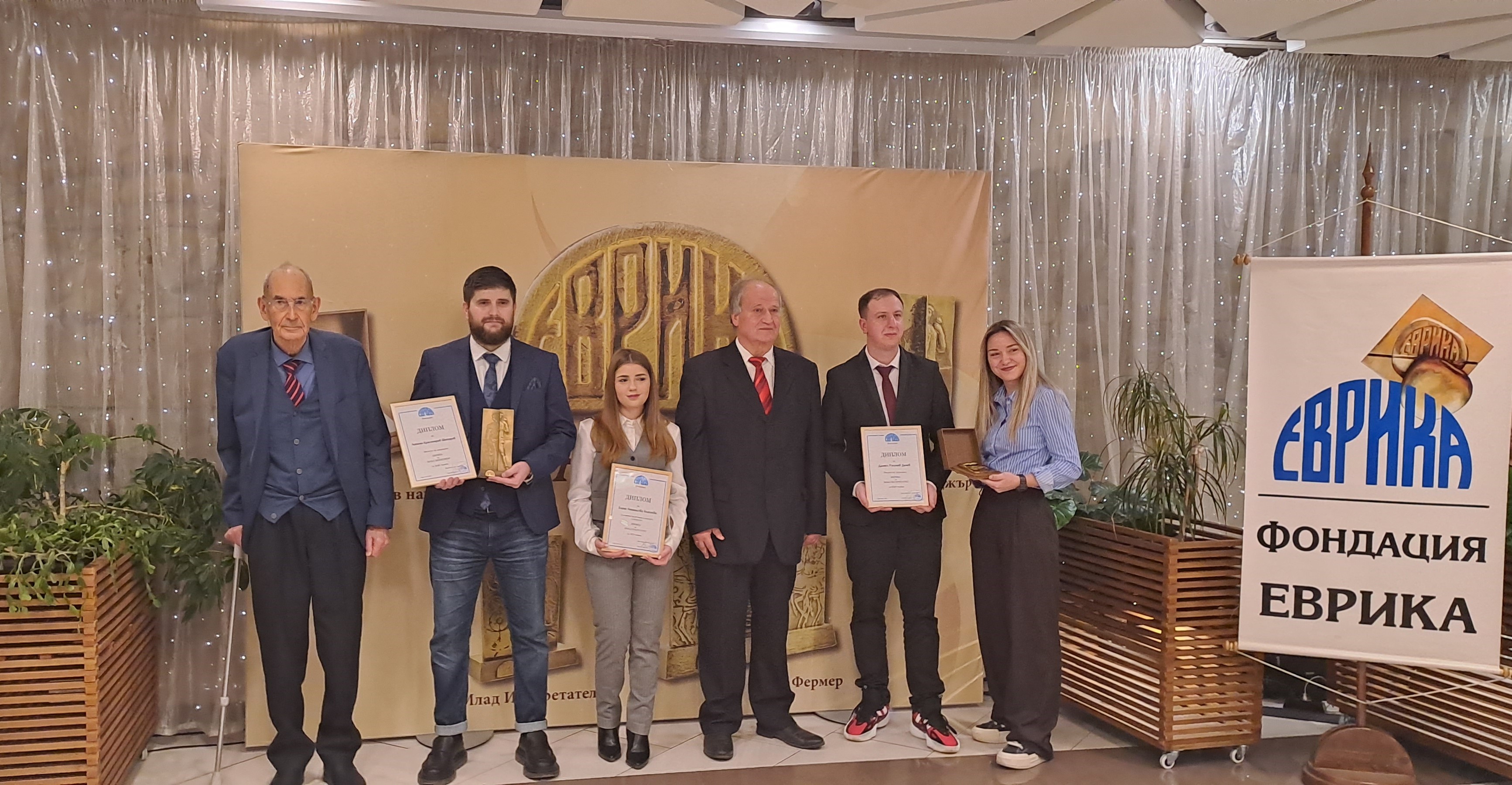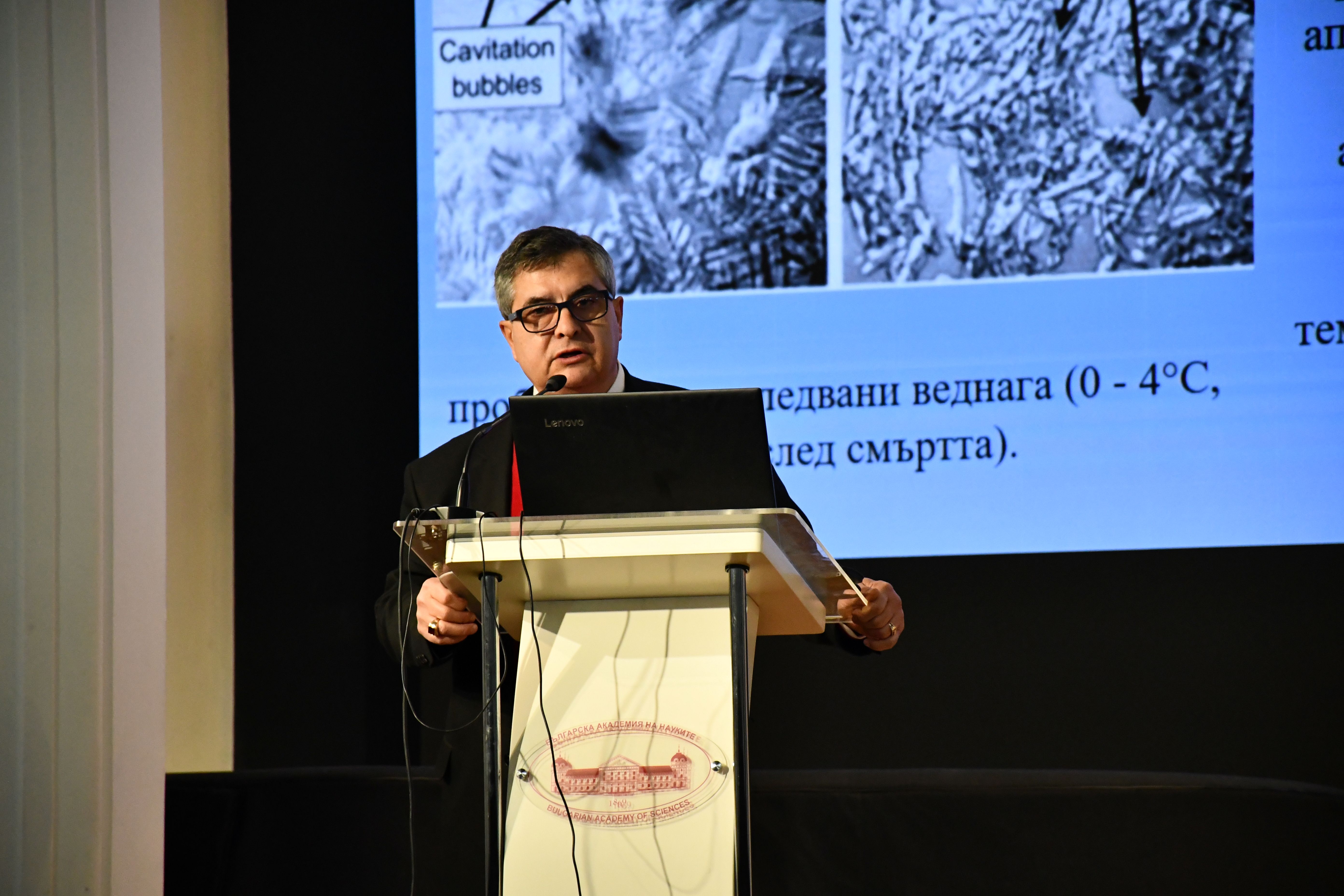The first interdisciplinary hackathon “Young Researchers on a Mission: innovations for a better life in Sofia” organized by the PhD Training Center of the Bulgarian Academy of Sciences took place from October 21 to 23 at the University of National and World Economy. The event was organized as part of a project funded by Sofia Municipality’s “Sofia – City of the Young and Active” program. This is the first interdisciplinary hackathon for young scientists held in Bulgaria.
The mission of the initiative was to encourage young scientists to put science into action—to apply their knowledge to real-world problems, working in interdisciplinary teams and developing leadership and entrepreneurial skills. Nearly 60 participants took part in the hackathon – doctoral students, postdoctoral researchers, assistants, and students with an interest in scientific and applied activities.
The hackathon was opened by Corr. Memb. Evdokia Pasheva, Vice-President of BAS and project leader who emphasized that there was a solid foundation of knowledge and teamwork behind every successful idea. Prof. Dimitar Dimitrov, Rector of UNWE, also greeted the participants, and among the official guests was Atanas Dimitrov, Director of the Inter-University Center for Career Development at UNWE.
The young scientists presented an impressive set of innovative concepts and solutions for a more sustainable, modern, and connected Sofia. Among the ideas were an air purification system, a “smart” pedestrian crossing for safer movement of citizens, and a platform for closer connection between the needs of people and the municipality. In the field of technology and services, a digital platform for searching for lost pets, an integrated road safety system, and a system for optimizing urban transport stood out, while in the field of cultural heritage preservation, an innovative method for preserving historical sites was presented. Social and environmental innovations also took center stage: participants proposed innovative packaging and healthy eating for kindergartens, concepts for mobile kindergartens, and a new approach to preserving green spaces in urban environments.
During the three days of the hackathon, young scientists received valuable knowledge and guidance from established experts. The topics of the lectures and training sessions covered a wide range – from design thinking and storytelling to effective leadership, stress management, and presenting scientific ideas to investors and the general public.
During the hackathon, awards were presented in three categories:
The award for “Most Innovative Project” was given to the Brainstormers United team for their project “Live Bacteria for Living Cultural Heritage” – a bold and original proposal for using microorganisms to preserve cultural monuments.
The award for “Most Applicable Project” was deservedly won by the Newton Meets Darwin team with their project “VetNet: CHIP AND TRACE” which offered an effective solution for tracking and finding lost pets.
The “Most Convincing Project Presentation” award went to the NextGen Thinkers team for their creative concept “Box for the Future” which impressed the jury with its inspiring and professional presentation.
With this initiative, the PhD Training Center of the Bulgarian Academy of Sciences has launched a new model of training and interaction between science and society, inspiring young researchers to turn knowledge into action. For more information: http://edu.bas.bg/


